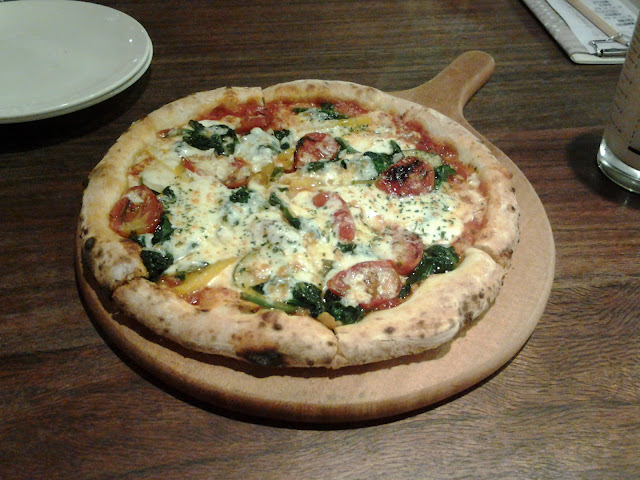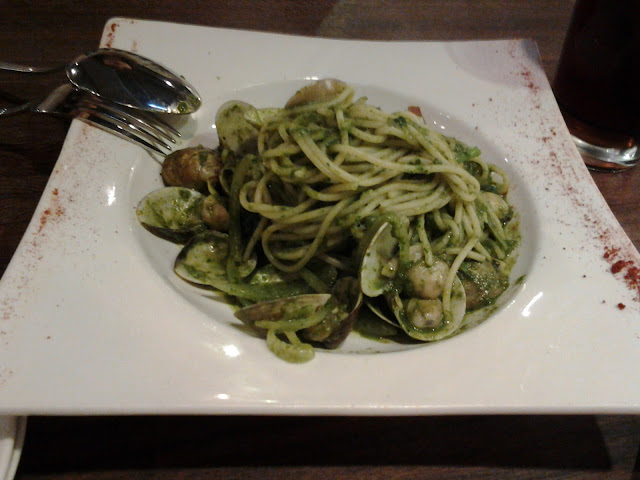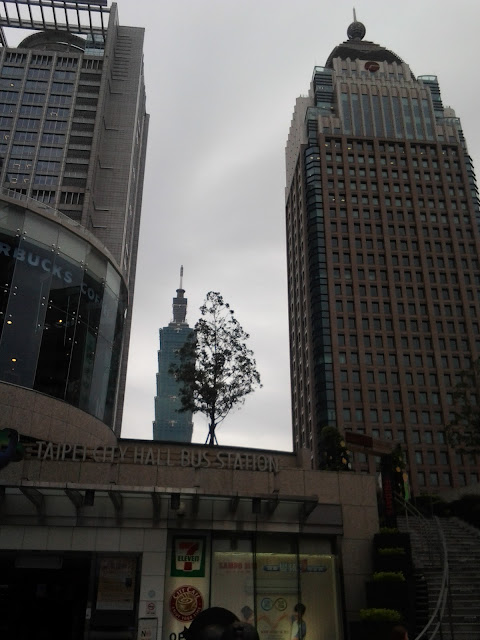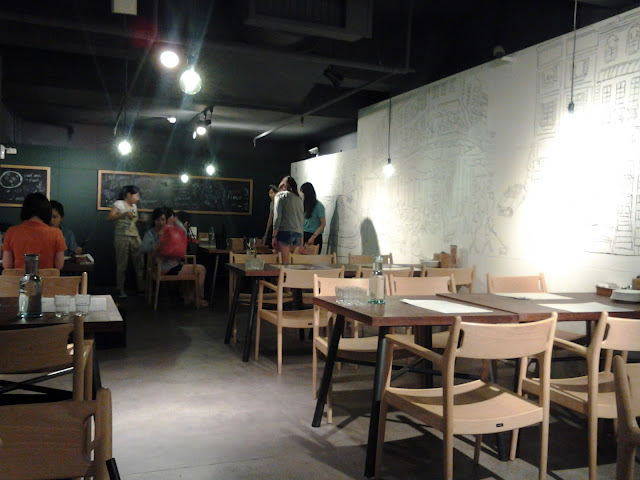Yesterday I went to dinner with a friend. She told me something interesting: "On your blog you always write about the dark sides of Taiwan and Asia."
I thought about what she said and I realised it's true. Indeed, I've been writing many posts about certain sides of Chinese / Taiwanese culture and life that I find different from those in the West, and that perhaps I do not like very much.
I usually try to be as balanced and objective as possible; but it is true that there are things about Chinese culture and thinking that are not quite compatible with my own personality and values. For example, I have written so many posts about the structure of the Chinese family because it is one of the aspects of this culture that fascinates me most, and that at the same time I cannot really accept as a guidance for my own life.
There are some Westerners who are enthusiastic about Taiwan. "I love Taiwan"; "Taiwan is a country of opportunities"; "Taiwanese people are nice and friendly", etc. There are bloggers who seem to specialise in writing eulogies of Taiwan. I never wanted to do that. I don't want to create an idealistic, over-optimistic image of Taiwan. The purpose of my blog is not so much to 'promote' Taiwan or China, but to make sense of my experiences by trying to understand how this society works.
On the other hand, there are also foreigners who write negative articles about Taiwan and China. As to the latter, I'd say that many Westerners tend to portray it in a negative light. As far as I'm concerned, I would like to stay in the middle between these two extremes, idealisation on the one hand, and condemnation on the other.
On the other hand, there are also foreigners who write negative articles about Taiwan and China. As to the latter, I'd say that many Westerners tend to portray it in a negative light. As far as I'm concerned, I would like to stay in the middle between these two extremes, idealisation on the one hand, and condemnation on the other.
Anyway, in order to counterbalance a little my posts that are perhaps too focused on the 'dark side' of Taiwan, today I will take a break from my usual posts about culture and society and simply share with you what I did yesterday. I think that I will in the future remember that evening as one of my nice memories of the time I spent in Taiwan.
I went to dinner with a very nice and interesting person. I can't mention her name, of course, but she will know I'm talking about her if she ever happens to read this post, either now or in the future.
She wanted to go to an Italian-style restaurant, called 'Bite 2 Eat' (薄多義). It is located in the most modern and fashionable area of Taipei, Xinyi District (信義區, pinyin: Xìnyì qū), which locals sometimes call 'the Manhattan of Taipei'. This area, together with a section of Da'an District (大安區 Dà'ānqū), is often called by Taipeinese 'Eastern District' (東區Dōngqū). It is considered the most bustling, modern area of the city. The Western District, around Taipei Main Station, on the contrary, has long been considered the old part of the capital. In fact, the Japanese had developed Taipei's centre mostly around the main station. At that time Xinyi was used to grow tea leaves.
She wanted to go to an Italian-style restaurant, called 'Bite 2 Eat' (薄多義). It is located in the most modern and fashionable area of Taipei, Xinyi District (信義區, pinyin: Xìnyì qū), which locals sometimes call 'the Manhattan of Taipei'. This area, together with a section of Da'an District (大安區 Dà'ānqū), is often called by Taipeinese 'Eastern District' (東區Dōngqū). It is considered the most bustling, modern area of the city. The Western District, around Taipei Main Station, on the contrary, has long been considered the old part of the capital. In fact, the Japanese had developed Taipei's centre mostly around the main station. At that time Xinyi was used to grow tea leaves.
Xinyi was completely reshaped by the urban planning of the 1990s. The government wanted to create a financial and business centre that was adequate to the growing economy and the new global status of Taiwan. So the city government and private investors created this huge modern area, whose most famous landmark is Taipei 101, one of the tallest buildings in the world.
Bite 2 Eat is right opposite Taipei City Hall MRT Station exit 2. Apparently it is a very popular place. It opens at 5.30 pm, but at 5 o'clock there were already many people waiting. About half an hour after we arrived, it was completely full. It is a very, let's say, 'lively' place; people enjoy talking, and it was so loud my friend and I looked like two old people who cannot hear each other. At one point, she said: "You are my only travelling friend." "You have no other friends who travel?" I asked. "What?" She looked confused. "What did you just say?" I asked again. "I said you're my only Italian friend." "Oh, I see." Indeed, it was so loud that from time to time we had such weird conversations.
After our prolonged dinner - which ended at 9.30 when the restaurant closed - we went to Eslite Bookstore. This is one of the places every tourist should visit. It is a famous Taiwanese bookstore chain, with some branches open 24 hours a day (if you quarrel with your girlfriend, maybe that could be a place to spend the night). As I have observed, in this bookstore there is a surprisingly large number of Taiwanese beauties dressed as if they were about to take part in a fashion show. Indeed an attraction in its own right.
Let me now share with you a few pictures of Xinyi, Taipei 101 and Bite 2 Eat.

|
| I like trees, but I have to admit that I wished this one had been cut down because it's impossible to take a decent picture with the tree blocking the view. |

|
| The pizza is smaller than it looks on the picture, but it's quite good |

|
| I didn't try this spaghetti, and I just realised I didn't ask my friend how it was. But it looks good. |

|
| Taipei City Hall Station, exit 2 |

|
| Taipei 101 |
Let me share other pictures of Xinyi I took on different occasions:











|
| Bellavista. I don't know if you can guess what it is. Well, though it may look like something else, it's actually just a department store. |










Comments
Post a comment